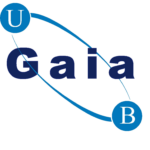Jordi Torra i Roca, Barcelona, 23/04/1949 – 26/02/2019
Ph.D. in Physics by the Universitat de Barcelona (1984) and Professor in the Department of Quantum Physics and Astrophysics in the same University, he focused his research career in the study of the structure, formation and evolution of our Galaxy, the Milky Way. He was one of the pioneers at European level in the development of the field of Astrometry from Space. In the 80s he accepted the challenge to lead the Spanish participation in the European Space Agency’s Hipparcos mission and, as a result from this work, Spain is fully participating in the Gaia mission, launched in 2013 and still in operation. Gaia is without doubts, the mission in which Jordi Torra had a more outstanding role, a mission that has made Europe world leader in astrometry from space and that, with its already demonstrated capabilities, it is revolutionising all fields of astrophysics.
Jordi Torra conducted with excellence the leadership of the Spanish group involved in Gaia. In our Gaia-UB group more than 50 professionals have been trained in the last 20 years. This team is currently comprised by around 30 astrophysicist and engineers working side by side, as he always defended, to tackle the scientific and technological challenges raised by this and future big international projects at the forefront of research and technology. Jordi Torra also participated in other space missions as the optical camera of the Integral satellite (OMC@INTEGRAL) or the SMART-2 mission. More recently he was involved in the definition of future astrometric missions (NEAT, THEIA y GaiaNir).
Passionate about astronomical observations and with a wide experience in the usage of telescopes on Earth, Jordi took part in the development of new instrumentation for the Gran Telescopio de Canarias (MIRADAS@GRANTECAN) and was one of the promoters of the establishment of the Observatorio Astronómico del Montsec (OAM) and of the Centro de Observación del Universo (COU), both in Àger, the largest infrastructures for astronomical observation and public outreach in Catalunya.
A highlight is his excellent and dedicated educational work in astrophysics and mathematics for many generations of students in the degree of Physics. Jordi trained many young researches in the field and supervised nine Ph.Ds., with most of them still active in research. In the transfer of technology, he was founder of the first joint spin-off company (DAPCOM) between the Universitat de Barcelona and the Universitat Politécnica de Catalunya (UPC).
His enormous working capacity and his high degree of responsibility that he never avoid, took him to assume several roles in scientific management: Gestor del Plan Nacional de Astronomía y Astrofísica (Spanish Manager of the National Plan in Astronomy and Astrophysics, 2007-2011), member of the Committee for Spain joining the European Southern Observatory (ESO, 2006), coordinator of the Red Española de Infraestructuras en Astronomía (Spanish Astronomy Insfrastructures Network, RIA, 2012-2017) and director of the Instituto de Estudios Espaciales de Cataluña (IEEC, 2015-2017). Jordi was also the promoter of the first law on Light Pollution by the Generalitat de Catalunya.
Jordi worked with passion in all fields: education, research, science management and public outreach. His involvement was recognised with the awards “Ciudad de Barcelona” in the Science and Technology field (2013) and, recently, with the “Medalla Narcís Monturiol” (2018).
Rest in peace.






